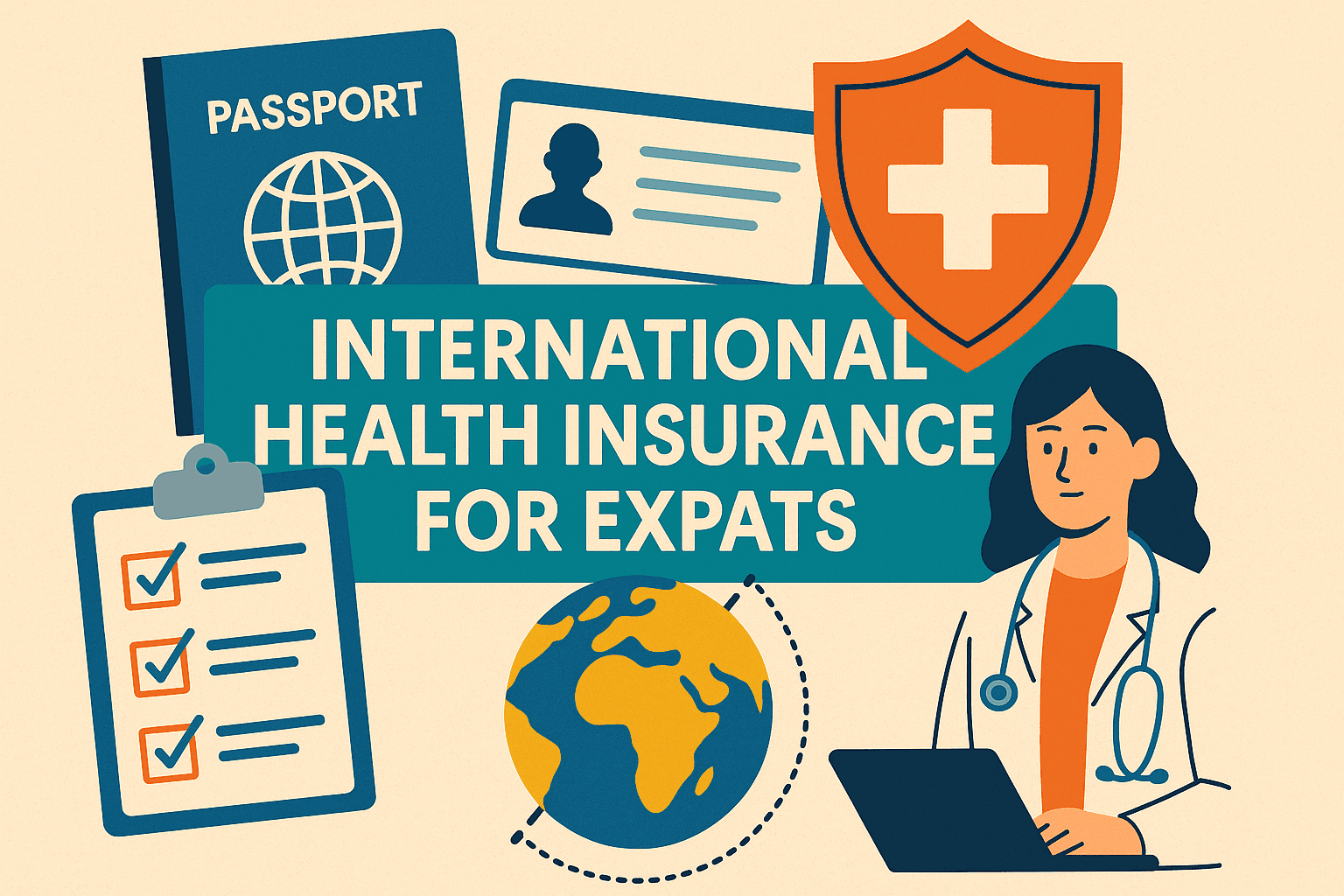
Moving abroad is an exciting adventure—but it also means giving up your local health coverage. Whether you’re relocating for work, retirement, or a long-term digital nomad lifestyle, getting international health insurance for expatsis a crucial part of your relocation checklist.
Many expats underestimate how different healthcare systems can be—and how expensive an emergency could become without the right insurance. This guide will help you understand your options, compare plans, and avoid common mistakes when securing global health coverage.
Why Expat Health Insurance Matters
Health insurance isn’t just about emergencies. It’s also your gateway to quality care abroad, continuity of prescriptions, access to specialists, and peace of mind when crossing borders.
Here’s why you must have expat health insurance:
- Most countries don’t allow foreigners to use public healthcare without residency or legal status.
- U.S. health coverage doesn’t travel well, and Medicare doesn’t cover you abroad.
- Travel insurance is not a substitute—it’s limited to short trips and emergencies.
Types of Expat Health Insurance
1. International Private Medical Insurance (IPMI)
This is the gold standard for long-term expats. These plans offer:
- Inpatient and outpatient coverage
- Emergency evacuation
- Routine checkups and prescriptions
- Optional maternity, dental, and vision add-ons
Major providers: Cigna Global, IMG Global, Allianz Care, GeoBlue.
2. Local National Health Plans
Some countries (like Thailand, France, and Germany) allow legal residents to enroll in public healthcare, often at lower costs. However:
- Coverage is only valid locally
- Services may be slower or language-restricted
- Often not available to new arrivals or digital nomads
3. Travel Insurance
Good for short stays or tourists, but not recommended for expats. Limitations include:
- Trip limits (30–90 days)
- No coverage for pre-existing conditions
- Limited doctor networks
- No preventive or ongoing care
What Should Be Covered?
When choosing international health insurance, look for the following features:
✔ Worldwide Coverage (with or without the U.S.)
Decide whether you need U.S. coverage included (more expensive) or excluded (cheaper). Many expats choose to exclude the U.S. to save on premiums.
✔ Inpatient and Outpatient Care
Make sure it covers hospitalization, diagnostics, doctor visits, prescriptions, and specialist care.
✔ Emergency Medical Evacuation
If you’re living remotely, you need evacuation services to the nearest adequate medical center, especially in regions with weak healthcare systems.
✔ Pre-Existing Conditions
Some policies cover pre-existing conditions after a waiting period; others exclude them entirely. Check the fine print.
✔ Direct Billing Network
This allows hospitals and clinics to bill the insurer directly, so you don’t pay upfront and wait for reimbursement.
✔ Telehealth & Virtual Care
Look for plans that offer global virtual consultations—especially helpful when language barriers exist locally.
Top Providers of International Health Insurance for Expats
1. Cigna Global
- Customizable plans
- Huge medical network
- 24/7 support and evacuation coverage
2. Allianz Care
- Top-tier reputation
- Full U.S. and international coverage options
- Maternity and wellness add-ons
3. IMG Global Medical Insurance
- Affordable tiers
- Strong emergency evacuation coverage
- Flexible deductibles and coinsurance levels
4. GeoBlue Xplorer
- Ideal for U.S. citizens
- Comprehensive coverage with Blue Cross Blue Shield U.S. network access
- Great customer service
5. SafetyWing (Nomad Insurance)
- Budget-friendly option for digital nomads
- Monthly subscription model
- Covers COVID-19 and emergency care (limited for chronic care)
Cost of Expat Health Insurance
Costs vary based on:
- Age
- Destination
- Coverage level
- Pre-existing conditions
- Whether U.S. coverage is included
Typical ranges (per month):
- 25–35-year-old with no U.S. coverage: $80–$200
- 40–55-year-old with U.S. access: $300–$600
- Family of 4 (excluding U.S.): $300–$800
How to Choose the Right Policy
- Assess Your Healthcare Needs
Do you need maternity? Are you on long-term medications? Do you have pre-existing conditions? - Consider Regional Risks
Are you living in a rural, underdeveloped area or a major capital city? - Factor in U.S. Travel
If you return to the U.S. frequently, include short-term coverage for those visits. - Check Hospital Networks
Make sure your preferred local clinics or hospitals are within the insurer’s network. - Use a Broker or Comparison Tool
Platforms like InternationalInsurance.com or ExpatInsurance.com let you compare plans and get unbiased advice.
Expat Insurance vs. Travel Insurance: Quick Comparison
| Feature | Expat Health Insurance | Travel Insurance |
|---|---|---|
| Validity | Long-term | Short-term |
| Covers chronic care? | Yes | No |
| Covers pre-existing? | Sometimes | Rarely |
| Routine checkups | Yes | No |
| Evacuation | Yes | Emergency only |
| Best for | Residents abroad | Vacation travelers |
Tips for Managing Health as an Expat
- Schedule annual checkups before moving to your new location.
- Keep digital copies of prescriptions and medical records.
- Know your insurer’s process for claims and reimbursements.
- Use local clinics for minor issues to save on co-pays or deductibles.
Common Mistakes Expats Make
- Choosing travel insurance instead of health insurance
- Ignoring policy exclusions or waiting periods
- Not reading the fine print on pre-existing condition coverage
- Relying on credit cards for travel medical coverage (it’s often limited)
- Delaying insurance enrollment after arrival (some policies only allow entry within 30–60 days of landing)
Final Thoughts
Investing in international health insurance for expats isn’t optional—it’s foundational. From sudden illness to ongoing treatment needs, having global health coverage is the difference between chaos and confidence. Choose your policy wisely, compare plans annually, and always read the fine print.
Living abroad is rewarding, but only when your health is secure. Don’t gamble with your wellbeing—insure it.